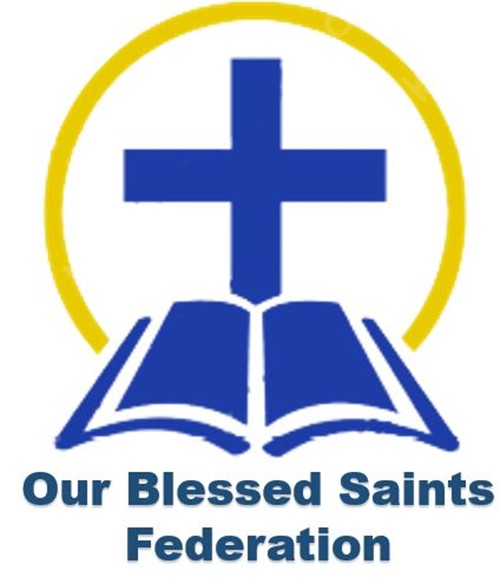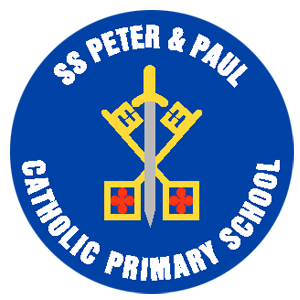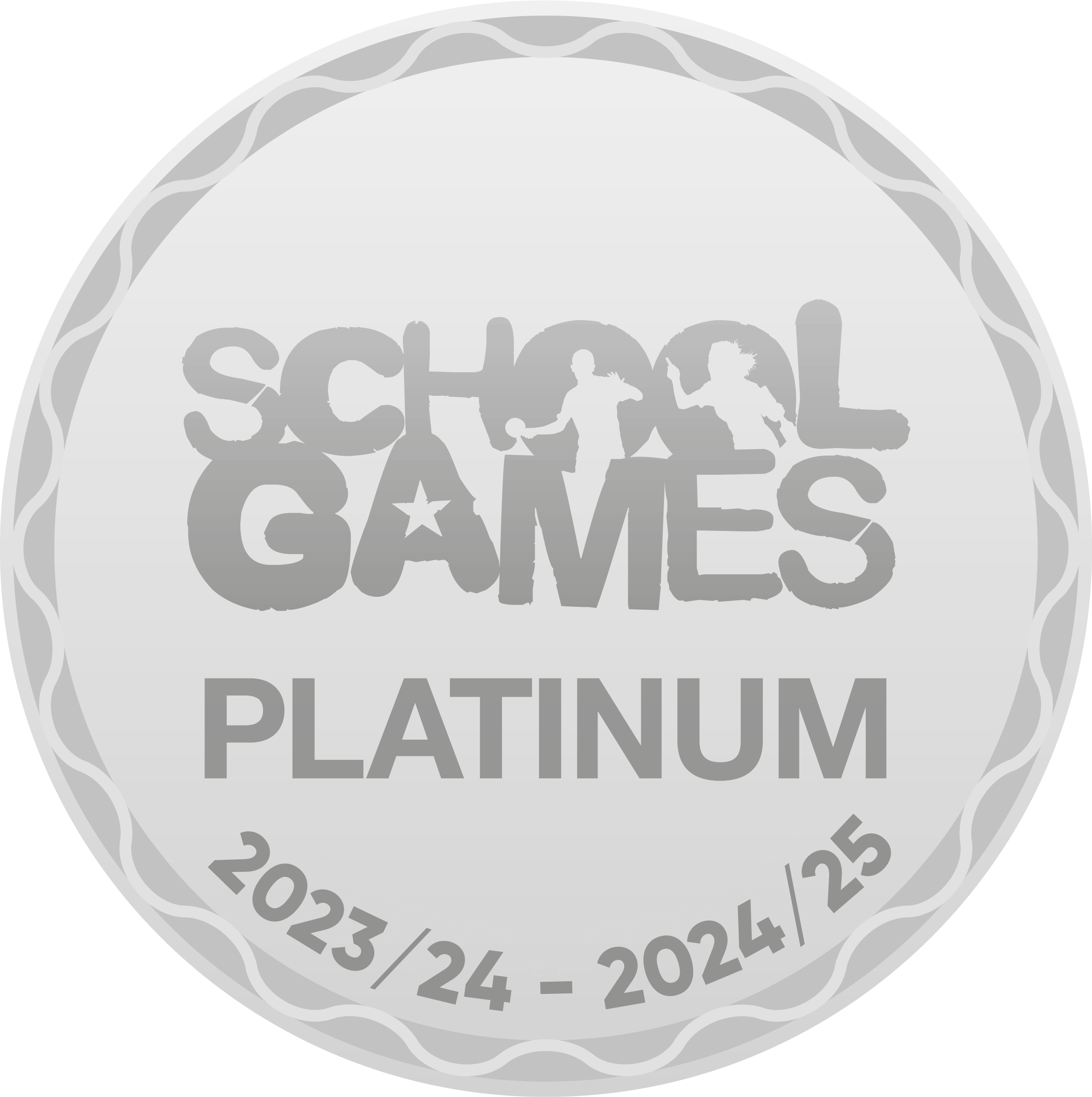MUSIC at SSPP
Music
At SSPP, we encourage our children to be expressive, engaged and creative when learning about music. We aim for all our children to have an enjoyment and energy for music alongside the knowledge and skills to experiment, invent and create thei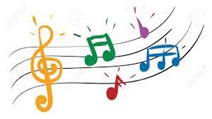 r own pieces. They should be critical thinkers and develop a fluent understanding of the skills as well as an awareness of music that has shaped our history and culture. We want children to become more musical and develop musically.
r own pieces. They should be critical thinkers and develop a fluent understanding of the skills as well as an awareness of music that has shaped our history and culture. We want children to become more musical and develop musically.
As well as weekly class music lessons we have a hymn practice each week to prepare for Masses, assemblies, concerts, shows, competitions, etc and a singing assembly every two weeks where we learn and sample a wide variety of songs from different genres and artists. We buy in Music 2 the 4, a specialist music service for classes in EYFS, Key Stage 1 and Two, whereby whole classes experience quality music tuition from qualified music teachers.
BRONZE MUSIC MARK
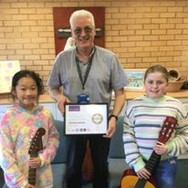
We have achieved our Bronze Music Mark award and will be working towards gaining Silver status!
Implementation
The music curriculum ensures students sing, listen, play, perform and evaluate. These components are embedded in classroom activities, as well as the weekly singing assemblies, various concerts and performances, the learning of instruments, and the joining of one of our many musical ensembles. The elements of music are taught in the classroom lessons so that children are able to use some of the language of music to dissect it, and understand how it is made, played, appreciated and analysed. They key knowledge and skills for each year are mapped to ensure progression between years. This ensures that children develop their musical skills systematically, building their knowledge of music from one year to the next.
In the classroom, children learn how to play an instrument, from all four main instrument groups of wind (Recorders), strings (violins), percussion (Varied) and glockenspiels. In doing so, they are able to understand the different principle of each method of creating notes, as well as how to read basic music notation. They also learn how to compose, focussing on different dimensions of music, which in turn feeds their understanding when listening, playing, or analysing music. Composing or performing using body percussion and vocal sounds is also part of the curriculum, which develops the understanding of musical elements without the added complexity of an instrument.
We utilise the planning and resources from SING UP, CHARANGA and BBC ten pieces to create our own curriculum with the support of Telford and Wrekin Music services. Each new unit of work begins with a recap of the previous related knowledge from previous years. This helps children to retrieve what they have learnt in the earlier sequence of the programme of study, and ensures that new knowledge is taught in the context of previous learning to promote a shift in long term memory.
Assessment is used throughout each unit of work. Once children know the new vocabulary for the unit and how it relates to previous learning, the children are asked what they already know and can recall specifically about the new topic. This provides the teacher with an insight into the children’s ‘starting points’ for the topic, to enable the use of assessment to inform planning. The children are then also asked what they would like to know and class responses are collated and used to inform the programme of study to ensure an aspect of ‘focussed interest planning’. A record of this process is kept on the class Seesaw platform which is collated by the teacher. At the end of the topic, children take part in a review of what they now know and can do. This involves a review of the key knowledge, with reference to the vocabulary and videos of the final pieces of music. The teacher is then able consolidate any of the key knowledge which is identified at this part of the process as not yet being secure.
The school has a number of links with external organisations, which offer specific expertise in music as part of the core offer. This includes an ongoing link with the Telford and Wrekin Music Service.
Impact
Whilst in school, children have access to a varied programme, which allows students to discover areas of strength, as well as areas they might like to improve upon. The integral nature of music and the learner creates an enormously rich palette from which a student may access fundamental abilities such as: achievement, self-confidence, interaction with and awareness of others, and self-reflection. The Music curriculum at SSPP also enables children to develop an understanding of culture and history, both in relation to students individually, as well as ethnicities from across the world. Children are able to enjoy music, in as many ways as they choose- either as listener, creator or performer. They can dissect music and comprehend its parts. They can sing and feel a pulse. They have an understanding of how to further develop skills less known to them, should they ever develop an interest in their lives. Concerts at school including our peripatetic teachers and students and the school’s involvement in local musical events, including the Newport Big Sing, ensure that children are confident performers. They also provide further means to showcase the impact of the school’s high-quality music provision.
Characteristics of a Musician
- A rapidly widening repertoire which they use to create original, imaginative, fluent and distinctive composing and performance work.
- A musical understanding underpinned by high levels of aural perception, internalisation and knowledge of music, including high or rapidly developing levels of technical expertise.
- Very good awareness and appreciation of different musical traditions and genres.
- An excellent understanding of how musical provenance – the historical, social and cultural origins of music – contributes to the diversity of musical styles.
- The ability to give precise written and verbal explanations, using musical terminology effectively, accurately and appropriately.
- A passion for and commitment to a diverse range of musical activities.
National Curriculum
Music is a universal language that embodies one of the highest forms of creativity. A high quality music education should engage and inspire pupils to develop a love of music and their talent as musicians, and so increase their self-confidence, creativity and sense of achievement. As pupils progress, they should develop a critical engagement with music, allowing them to compose, and to listen with discrimination to the best in the musical canon.
Aims
The national curriculum for music aims to ensure that all pupils:
- perform, listen to, review and evaluate music across a range of historical periods, genres, styles and traditions, including the works of the great composers and musicians
- learn to sing and to use their voices, to create and compose music on their own and with others, have the opportunity to learn a musical instrument, use technology appropriately and have the opportunity to progress to the next level of musical excellence
- understand and explore how music is created, produced and communicated, including through the inter-related dimensions: pitch, duration, dynamics, tempo, timbre, texture, structure and appropriate musical notations
Music Implementation Plan 2024-25
SSPP Music Implementation Plan 2024-25.pdf
Music Implementation Plan 2025-26 - In review
Spiritual, moral, social and cultural development in Music
